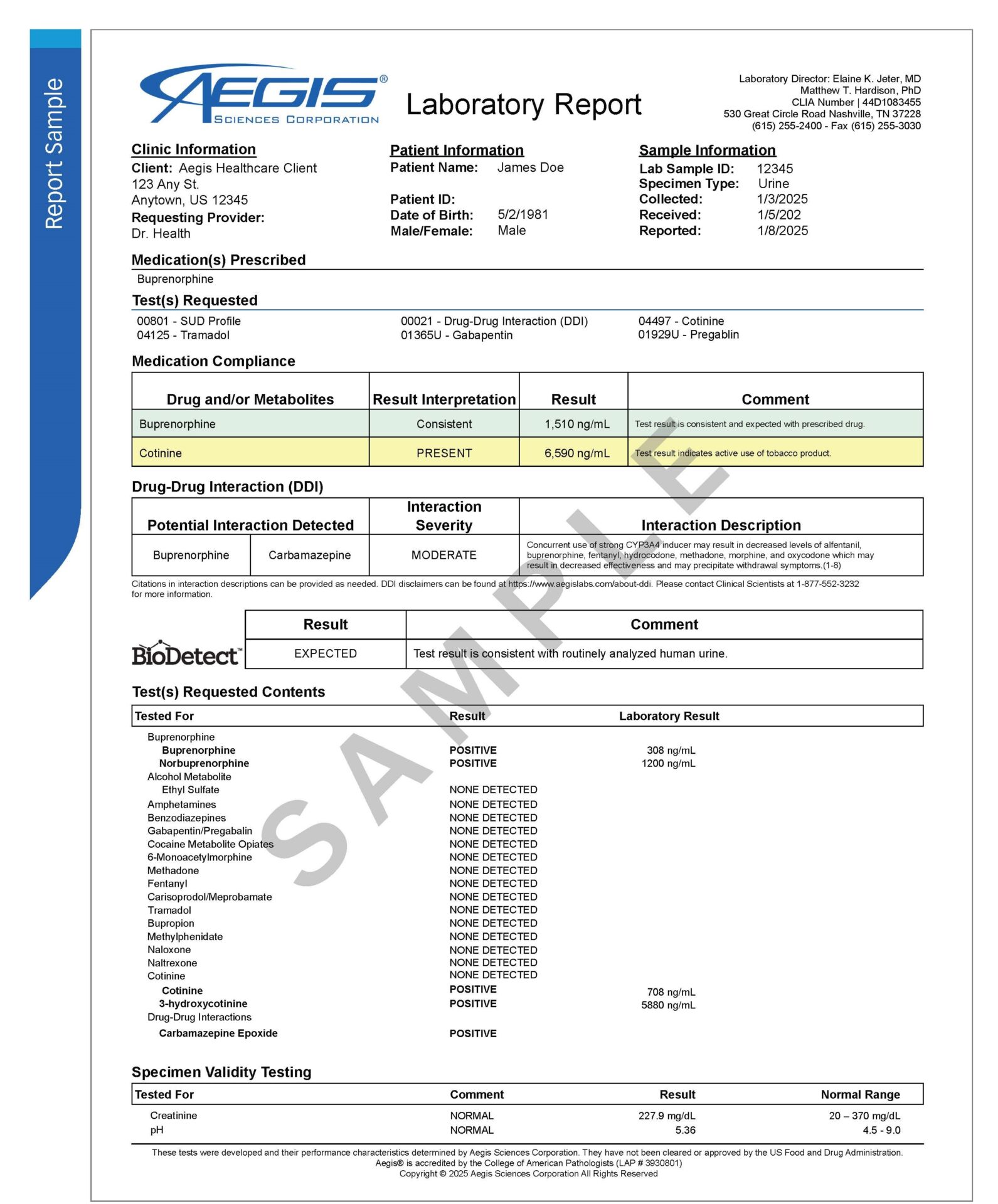
Inadequate Response in a Medication-Assisted Treatment Patient
This is an example scenario based on real medication compliance results.
Challenge
A 38-year-old man with a history of opioid dependence presents to his primary care provider (PCP) for a follow-up appointment. Over the past year, the provider has been prescribing this patient Suboxone® in order to assist the patient with sustaining his recovery. The patient complains that his treatment has been increasingly “less effective” and states he needs a higher dose. After evaluating the patient, the physician is puzzled by what could cause this sudden change of clinical effectiveness when the patient had previously been well controlled.
The patient is currently prescribed:
• Suboxone® (buprenorphine/naloxone) 8mg/2mg sublingually daily
Solution
The physician decides to order Aegis’s substance use disorder (SUD) testing profile and to add on InterACT Rx™ in an attempt to better understand the unexpected change in the efficacy of this patient’s prescribed medication.
The Aegis compliance report shows adherence to the prescribed Suboxone and the presence of cotinine due to nicotine product use, both of which the physician expected. However, the InterACT Rx test showed the presence of carbamazepine and its identified drug-drug interaction with buprenorphine, which were unexpected.
Outcome
After a follow-up conversation with the patient, the physician learns that the patient had recently been transitioned to carbamazepine for recurrent seizures that had become refractory to his previous medication prescribed by his neurologist. The patient had not thought to mention this to his PCP since the medication was prescribed by another physician. The addition of carbamazepine to the patient’s medication regimen interacted with the buprenorphine component of Suboxone and, ultimately, led to the decreased efficacy.
The InterACT Rx results shed light on the patient’s entire clinical presentation that was previously unclear and offered objective information that the physician was able to use to make an appropriate clinical decision. The provider decided to increase the patient’s dose of Suboxone from 8mg/2mg to 16mg/4mg and emphasized the importance of medication adherence for the treatment of opioid dependence. The provider also decided to implement a more stringent monitoring plan to assess for changes in this patient’s clinical symptoms due to an expectation that the patient will remain on a metabolic inducer (carbamazepine). When used in conjunction with Aegis’ SUD testing profile, InterACT Rx is able to provide actionable insight needed to address concerns about treatment efficacy.



